Is Bitcoin a Scam?
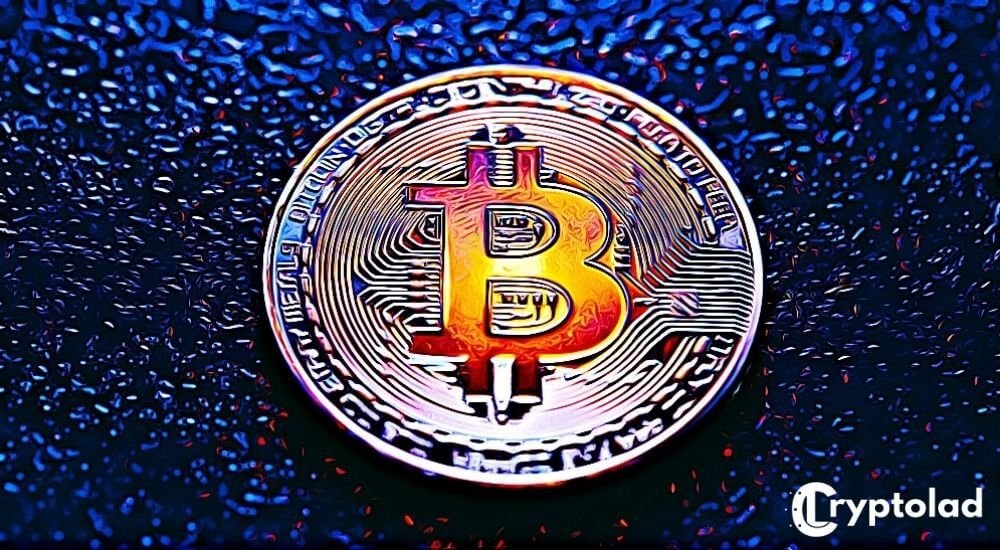
People who aren’t really familiar with Bitcoin and cryptocurrency are often skeptical about its security and legitimacy. Are you new to the concept of Bitcoin too? If you are, the question “Is bitcoin a scam” must have entered your mind. It’s understandable. Well, we’re here to help you find answers to this question. To understand if bitcoin is a scam or not, it’s important to know what bitcoin actually is and how its security works. Let’s find out.
What is Bitcoin?
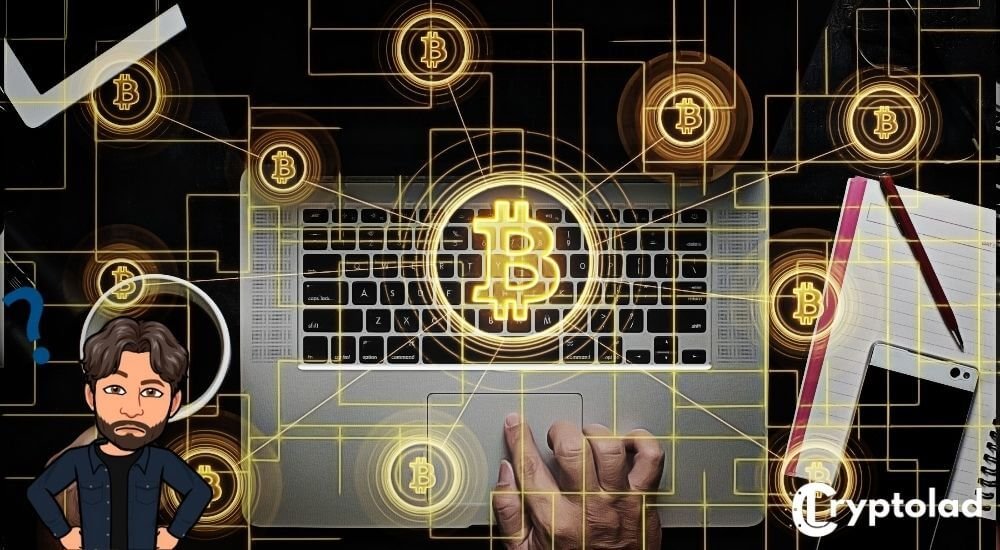
Bitcoin is quite literally and figuratively digital money because ‘bit’ means 1s and 0s while the coin is money. Bitcoin has become a huge part of the financial world, with values soaring up to unprecedented heights in 2020 and 2021. It’s only expected to go up from here, giving investors and users great opportunities to capitalize on it. Bitcoin really is the future, and if you’re looking to understand it, the first thing that you should know is what bitcoin is and how it works. Here’s a comprehensive introduction that can help you know more about it.
Few years after its inception in 2009, Bitcoin soon became the face of global cryptocurrency obsession as its pioneering platform. Bitcoin is a decentralized currency platform that provides people an alternative to centralized and government-controlled fiat currencies like the US dollar and Great Britain Pound.
Fundamentally, Bitcoin is more or less just a file that has a definite intrinsic value. The system registers this intrinsic value whenever a transaction, purchase or receipt, takes place. This registration has 3 basic parts: Payer or input address, output or buyer’s address, and the number of bitcoins transferred.
This whole network of exchange takes place on a peer-to-peer, decentralized platform comprising of volunteering individuals worldwide. While fiat currencies like dollars or euros have central banks or governments which ensure their credibility and evaluation, the Bitcoin network has other elements that ensure security, privacy, code-driven software, and encrypted control mechanisms. Let’s find out how they all work.
How Does Bitcoin Work?

The whole Bitcoin system uses a set of elements integrated into a decentralized network. Here are a few important ones:
The Blockchain
The blockchain is an open-source code that forms the backbone of bitcoin. It’s a technology that powers the bitcoin’s public record, helps it register each entry of transaction, and ensures its security. Every new transaction is added to the chain of code and becomes its permanent part.
Private and public keys
To sign and initiate a digital transaction with bitcoin, every user’s bitcoin wallet contains two keys. They’re known as public and private keys. The keys ensure authenticity.
Mining
Mining is one of the most important processes that take place on the bitcoin network. It validates or confirms each transaction between two concerned parties and then helps write it into the blockchain registry or ledger chronologically. All this is done by people or entities known as miners who participate in this process. They have to develop a consensus under strict rules that prevent miscreants from duplicating or tampering with the blockchain.
Miners
Miners are the ‘volunteers’ in the bitcoin network who use sophisticated computers and processors to confirm every transaction and update the blockchain in return for a specific bitcoin reward.
Decentralized Networks
All these miners or nodes sit on a decentralized network, and the bitcoin system relies on this network to verify whether a transaction that takes place between two parties is actually authentic or not. Unlike fiat currency with one central controlling body, the bitcoin verification system is a decentralized network with thousands of verifying bodies spread worldwide. This crucial security layer makes it almost impossible for anyone to conduct a cyberattack because even if someone manages to manipulate one of the nodes, thousands of other nodes, all independent of each other, will always remain intact.
If you’re still worried about Bitcoin’s security, let’s take a detailed look into things that protect Bitcoin and ensure that it’s always safe to use.
How Safe is Bitcoin?

Since Bitcoin is still a relatively new form of technology, many people are skeptical about its security and protection. Are you one of them? Don’t worry. By the end of this article, you’ll have a very comprehensive idea about things that make Bitcoin secure. Starters need to understand that bitcoins are unlike anything we’ve worked with and have special operating and protecting mechanisms that enable them to work without any third-party interventions. Let’s briefly explore the important features that make bitcoin safe for everyone to use.
Encryption and cryptography algorithms
If you look at the literal meaning of crypto, you’ll find out that it means something secret or hidden. In the world of bitcoin, it represents anonymity. Therefore, cryptography in bitcoin actually ensures partial or complete anonymity in the network for individuals using it. By definition, the cryptography algorithm is the element that safeguards the security of each monetary transaction and its participants, ensures that the network keeps operating independent of a centralized authority, and protects hackers or miscreants from using a spent Bitcoin again, also called double-spending. As you can see, cryptographic encryption is present at multiple areas and levels within the bitcoin network. It’s responsible for generating new coins as rewards after a successful mining operation, and more importantly, it verifies the exchange of digital assets.
Public record keeping
Yes, you heard that right. All records in the bitcoin are kept public. You might be thinking that this is the most unsafe thing ever. Well, it’s entirely the opposite. Public record keeping in the bitcoin network means that any bitcoins transaction is accessible for everyone to see. This doesn’t mean that bitcoin users' identities are public; it just means that any bitcoin that has ever been transferred from one place to another after confirmation becomes a permanent part of the record. Let’s assume that you receive a bitcoin. The public record of the blockchain ledger will ensure that thousands of people (nodes) keep an eye on it so that no one can take it back from you.
Decentralization
As of 2021, more than 10 thousand different nodes in the bitcoin network, spread worldwide. No single individual, government, or entity owns or operates this distributed network of computers and processing units. All of them are responsible for the verification of transactions. Without their consensus, no transaction can be confirmed. Here’s the catch: even if one of these nodes takes a hit, there are thousands of others in the system, all working independently of each other. This makes it almost impossible to alter the record of transactions, stopping everyone from forgery or duplication.
Keeping your Bitcoin safe
Apart from bitcoin’s own protection mechanisms, it’s important that the users also play their part by keeping their wallets, devices, and phones secure. Keeping the software updated, maintaining backups in secure, physical devices, and storing the passwords on high-security clouds are some of the ways people can keep their bitcoins safer.
Despite all this, it’s straightforward to fall prey to a Bitcoin scam. You must be aware of the top bitcoin scams out there and know how to stay safe from them.
5 Common Bitcoin Scams you Need to be Aware of
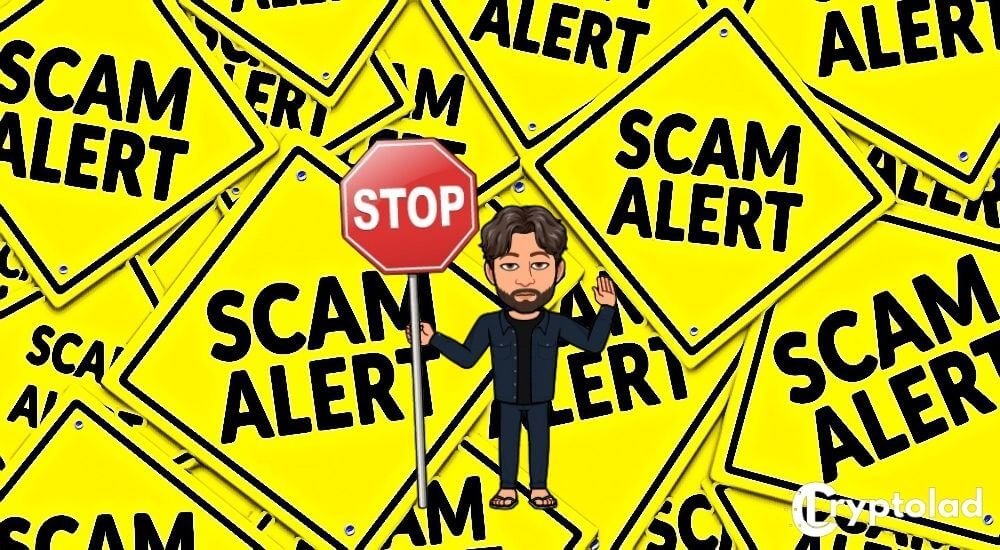
The boom of Bitcoin over the last few years and its meteoric rise in value has attracted millions of people around the globe. You’re surely one of them, aren’t you? It’s difficult for starters to grasp the idea and philosophy behind Bitcoin’s technology, it’s understandable. Seeing people out there making millions of dollars in a couple of years surely is overwhelming, and everyone wants to do that. However, there are people out there who want to take advantage of your ambitions and bitcoin’s success. While Bitcoin may be impregnable from the inside with high-end encryptions, cryptography, etc., it’s very easy to get scammed from the outside. Here are the top 5 Bitcoin scams you need to be aware of.
Fake and inauthentic Bitcoin exchanges
There are hundreds of fake bitcoin exchanges lurking around the internet with proper marketing and advertising campaigns. They lure people in, accumulate their investments, and then shut down. The South Korean Bitcoin community, in 2017, caught one of the biggest fake exchanges called BitKRX with the help of financial authorities. Therefore, you should only stick to reputable exchanges endorsed by the local bitcoin forums and communities.
Typical Ponzi schemes
The classic stock market investment Ponzi schemes apply to Bitcoins as well. In this pyramid structure, scammers often take money from new investors and use it to pay off previous ones, creating a cycle of never-ending fraud. Authorities unearthed a $722 million cryptocurrency fraud being perpetrated by three men in 2019. They operated the BitClub Network and lured people into investing with them in exchange for lucrative returns from fake mining pools.
Fake, fraudulent cryptocurrencies
Many scammers create or project a fake cryptocurrency and lure people into believing that it’s an alternative to Bitcoin. They construct a narrative that the Bitcoin boat has sailed, and it’s just too late to invest in it and get good returns. As an alternative, they present their own fake cryptocurrency, promise that it will take a similar, profiting trajectory like Bitcoin and then vanish with the investors’ money. Something similar happened in the My Big Coin case.
Classic email, SMS scamming
Like the good old IRS scams urging you to pay your ‘taxes’ through digital money, Bitcoin scammers can ask you to pay in bitcoins while posing as officials. Legitimate authorities will never communicate with you through such channels or in such a manner. Ensure you establish the authenticity of these phone calls or emails and refrain from sharing any of your wallet or bitcoin addresses.
Hacking and malware
The bitcoin network is completely secure from cyberattacks, but that does not mean your computer or smartphone. Your devices are vulnerable to cyberattacks like malware, hacking, etc. The bitcoin wallets in your device can be accessed if you download any malware from the internet. Therefore, you should be cautious about what you click in your emails or the files you open on your smartphone. You can be lured into downloading any interesting thing like a certain app that supposedly allows you to mine a certain cryptocurrency for free.
Once you have your bitcoins inside a wallet on your devices, it’s your job to keep it secure. There are many ways you can keep yourself safe from such dangerous scams.
How to Protect Yourself from Bitcoin Scams
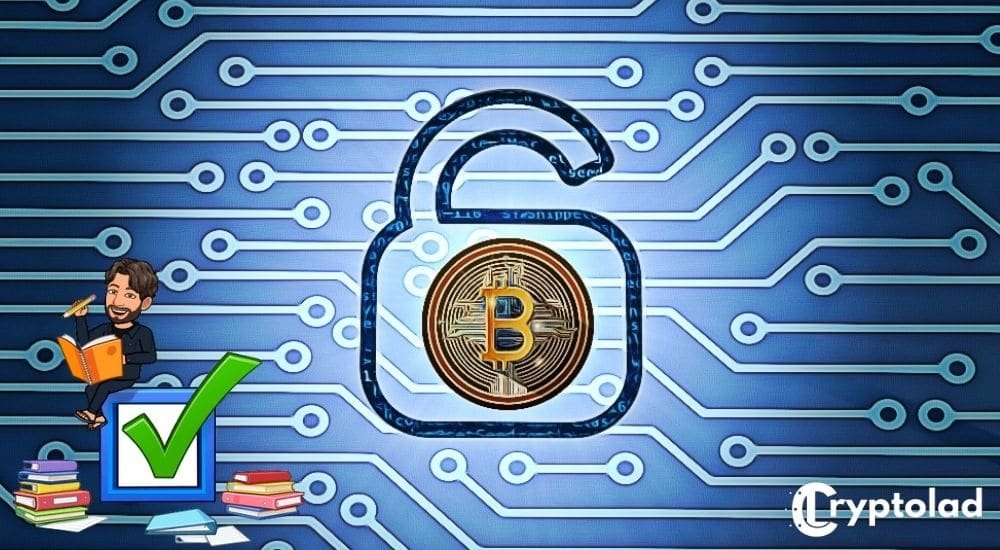
If someone gives you a counterfeited 100-dollar note in Australia, the USA, etc., there are many ways you can check its authenticity. You can compare the color patterns, textures, check for a metallic line, observe it under a magnifying glass or take it to a nearby bank to get it examined. With bitcoins, too, people on the internet will try their best to scam you, and like cross-examination of a note, there are many ways you can stay safe from them. Here’s a brief guide on how to stay safe from bitcoin scams.
Do thorough research beforehand
You will find myriads of information on the working and operations of Bitcoin all over the internet. It would be best if you took some time out of your routine to learn about cryptocurrencies, blockchain technology, and their working before you start investing in them.
Checks on Wallets and Exchanges
Not just the understanding of bitcoin’s working, it’s also essential that you conduct thorough research on the wallets, their security, and their reviews. You have to be sure that the wallet you’re using to store your bitcoin funds is legitimate and will keep your asset safe at all costs. Just because a certain wallet is listed inside the App Store doesn’t mean that it’s authentic software. It’s your responsibility to ensure that the wallet app you’re using is credible.
Secure your Bitcoin keys
The greatest thing about bitcoin is that it’s a decentralized currency. No central financial figure or institution has any control over the workings of Bitcoin. This also means that you won’t have any bank or support hotline to call if you get into trouble. Since the bitcoin system doesn’t allow any central authority to step in and mediate, you’re on your own, to put it simply. It’s your personal responsibility to keep your crypto assets safe.
There are two kinds of Bitcoin keys: private and public. You use the public key to receive bitcoins into your wallet by sharing it with another user. The private key has to remain confidential under any circumstances. You’ll have to use it to encrypt and decrypt your wallet. It’s like the code to your safe. If you lose it, you’ll lose access to your wallet and eventually to your bitcoins. Therefore, you should store it in a physical drive, keep it somewhere safe and upload it on a secure cloud as backup.
Your Bitcoin keys are not for sharing!
No matter how much you trust someone, never share your private key with anyone, especially online. Apart from this, you’ll also have a seed or recovery phrase from when you download and create your wallet. This backup phrase is a specially formulated group of words that form after wallet creation. You must write them down somewhere and keep them safe. Keeping them in handwriting is usually recommended because storing them physically with you gives you more authority to keep them protected rather than on a computer, vulnerable to cyberattacks. Scammers often try to acquire this seed phrase because once they do get to it, it’s all over for you and your coins in the wallet.
Keeping an eye out for hacking, malware, and phishing
You need to be vigilant when it comes to phishing scams because they are among the most common methods hackers and scammers typically use. Their ultimate goal always is to get your private or seed keys. Hence, they plan accordingly and try to impersonate authorities, services, or companies and extract them using emails, SMS, fake websites, etc. Once you enter your keys into these fake scripts or forms, they’ll acquire your keys, access your wallet and empty it in an instant.
They make a lot of effort to give these emails an authentic look so that the receiver thinks they’re from a legitimate source. They’ll pretend to be representatives from popular Bitcoin exchange or trade platforms, which you’ll probably have heard about before. The email or text could be about downloading a fix for some security bugs.
Apart from phishing attacks, you need to be extra vigilant when downloading other software on your devices, as they can easily turn out to be malware intended for cyberattacks.
Lastly, always remember there is no such thing as 'Free' Bitcoins!
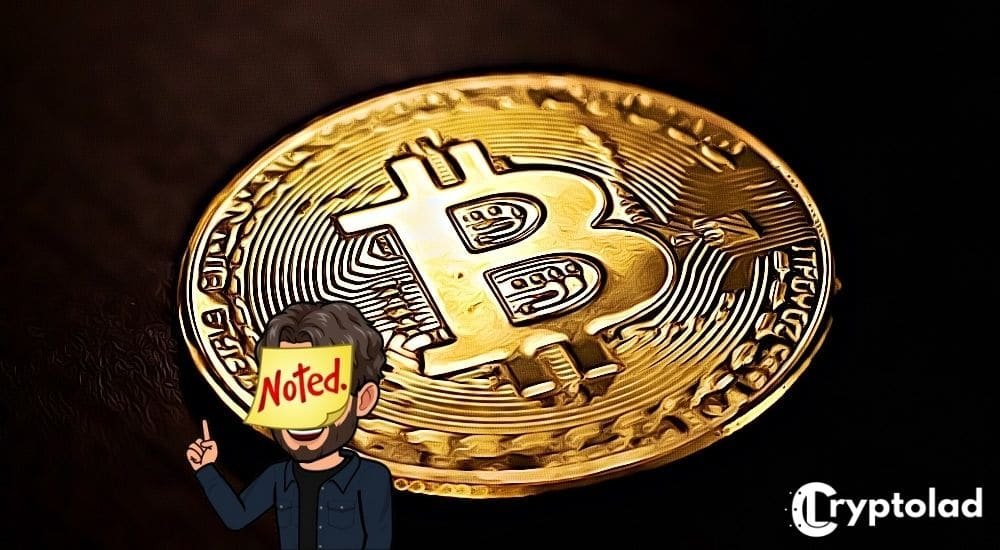
Finally, it would be best if you got it into your mind that no one will give you free bitcoins no matter what happens. It’s never going to happen, so don’t share your private keys to get ‘free bitcoins.’